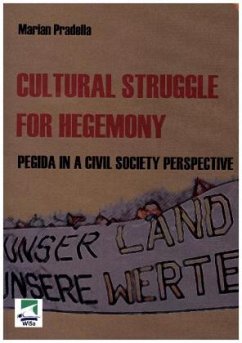The PEGIDA movement is the largest right-wing civil society phenomenon in recent German history. During its peak, the movement attracted up to 25.000 people at demonstrations in Dresden and other cities. In his study, Marian Sven Pradella identifies the ways in which PEGIDA was able to unite heterogeneous social actors and how the movement was able to exert massive influence on the German political sentiment. Methodologically, he applies the socio-cultural theories of Jeffrey C. Alexander and Ernesto Laclau / Chantal Mouffe. Pradella offers a new explanatory approach going beyond simply considering PEGIDA a 'political problem'. Instead, he unfolds the political background structures behind the movement and also reveals theoretical problems one faces when combining Alexander and Laclau/Mouffe.








